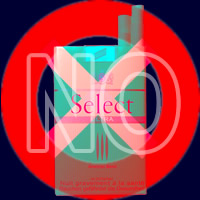|
Bhutan
Country Information
|
 |
Bhutan Information |
|
|
 |
|
Strict application of the Act to come into effect from January 2011
|
| A person is allowed to bring into the country a maximum of 200 sticks of cigarette or 30 pieces of cigar or 150 g of other tobacco products a month.
However, they should be 18-years and above and can bring in only one tobacco product at a time.
They will be charged 200 percent sales tax and customs duty for tobacco products originating from countries other than India. Those from India will be charged 100 percent sales tax.
|
|

|
At the customs, the person should produce either a citizenship card, passport or a voter identity card. Following that the person will be issued a receipt, reflecting the details of the product and identity of the person.The receipt will be considered valid for a month from date of issue and the person will have to hang on to it every time he smokes.
Finalised by the tobacco control board , in accordance to the tobacco control Act of Bhutan, the rules will be put into "serious practice", when the Act becomes operative in January 2011.
|
January 2011: Tobacco Control Act
|

|
 |
|
200 maximum number of cigarette sticks permissible
1 month receipt validity
1-3 years prison term if caught smoking in restricted areas without receipt
3-5 years prison term for smuggling tobacco products
Nu 500 spot fine for smoking in restricted areas
Nu 10,000 for failing to display signboards and notices
200% tax for products from countries other than India
100% tax for those from India
|
|
"Any person, who brings in extra, will be liable for smuggling," Bhutan narcotic control agency legal officer Sonam Tshering said. This translates into a fourth-degree felony, which means a three to five-year prison term.
He said any person caught smoking in restricted areas will have to pay Nu 500 fine on the spot.
"He will then be asked to produce a receipt issued by customs division, or else he'll be asked to reveal his cigarette supplier," he said.
Upon revealing the source, it is evident the person was engaged in tobacco transaction, which is a misdemeanour, meaning a prison term of one to three years.
If the person fails to reveal the source, he will be charged for smuggling in tobacco products, meaning another three to five year prison term, in addition to previous charges.
"And this is non-compoundable," he said.
While representatives from police, trade, customs and the agency will conduct the monitoring, cooperation would also be sought from institutions and other counterparts like hoteliers.
Sonam Tshering said a person operating public places and transport will have to display notices indicating prohibition of smoking.
"It isn't compulsory, but they can have designated rooms for smoking with proper ventilation," he said, adding that signboards and notices should be displayed in Dzongkha and English, accompanied by the no-smoking sign.
Failing to do so would result in paying a fine of Nu 10,000 for each incident.
The implementation of the Act, which was endorsed in the fifth parliament session in June this year, was pushed to January 2011, since it was felt there was a need to educate public on the provisions and penalties of the Act.
Considering strong provisions in the act, agency's executive director, Kinley Dorji, said implementing the act was going to be a challenge.
"But we feel good about the overall intention of the Act," he said. "That one day Bhutan will become a tobacco-free country, and our people will enjoy better mental and physical health."
He said that, along with the enforcement of the act, they would pursue a vigorous awareness program, starting with the vulnerable dzongkhags like those along the borders.
Sonam Tshering said notices would be issued to all dzongkhags, gewogs, institutions and organisations.
"We're starting now because, if we'd launched our advocacy program earlier, people would have forgotten," he said, adding after that, ignorance of law would be no excuse.

|
| Contributed by By Kesang Dema , KUENSEL, Bhutan's National Newspaper, November 2010 |
| Information on Bhutan |
 |
|




